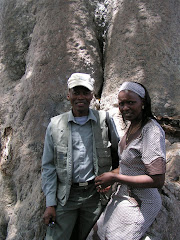At the second Pan African Summit on Children(Africa Fit for Children Summit) in Egypt, Ministers responsible for children’s affairs declared female genital mutilation inhuman, barbaric and degrading to the girl child. As such, there was a call for action for it to be abolished forthwith. Some countries had reservations that this practice was culturally acceptable and that some communities would not easily accept its immediate abolishing.
The worst thing about FGM is that elderly women who have gone through this practice at an early childhood stage are the ones who administer the barbaric act of circumcising young girls. They don’t seem bothered and do not show any remorse because they want to fulfill the cultural obligations. It is believed that female circumcision is done on girls so that they could not experience sexual gratification. This is also done to please their male partners during sexual encounter.
Female genital mutilation is common in the eastern, central and West African countries. Some African countries have take steps towards elimination of FGM.
In the United Kingdom the Prohibition of Female Circumcision Act of 1985 makes female circumcision, excision or infibulation (female genital mutilation (FGM)) an offence, except on specific physical and mental health grounds.
Effects of FGM on children
Available medical evidence indicates that FGM causes harm to those who experience it. The cutting of the female organs is a painful experience to the girls undergoing this process. There are reports of excessive bleeding sometimes leading to death of victims. In the UK a local authority may exercise its powers under s.47 of the Children Act 1989 if it has reason to believe that a child is likely to be or has been the subject of FGM.
Interventions to combat FGM
Local agencies that have a responsibility of protecting children should be alert to the possibility of female circumcision among the ethnic minority communities known to practice it. In local areas where there are communities or individuals who traditionally practice FGM, the focus should focus on a preventive strategy involving community education.
Development partners such as UNICEF should assist countries to develop plans and strategies geared towards the elimination of FGM.
Children should be sensitized and empowered to be on alert and report any suspects who are involved in carrying out FGM to the authorities.
What are your feelings about FGM?
Subscribe to:
Post Comments (Atom)











No comments:
Post a Comment